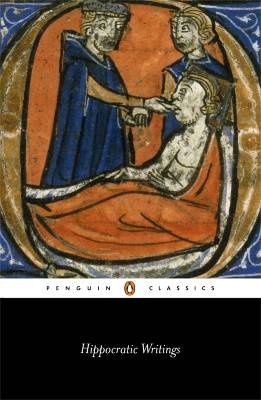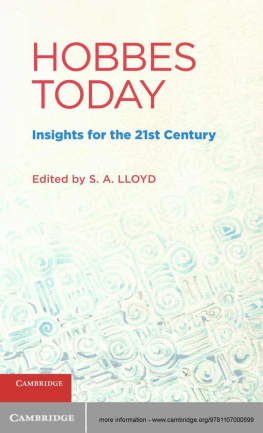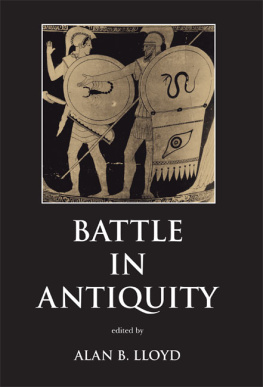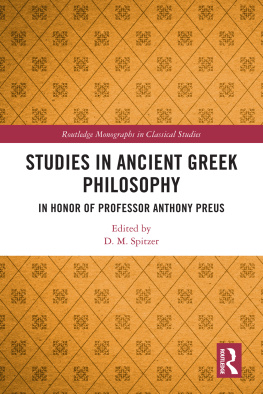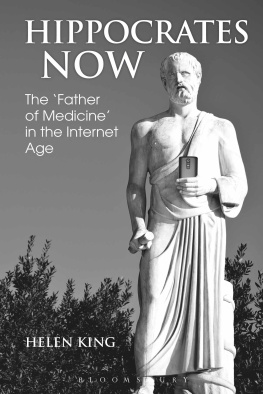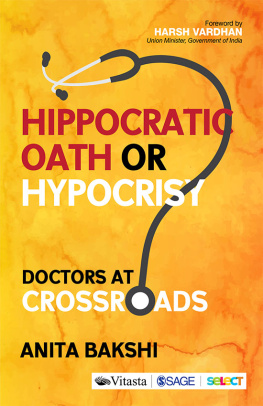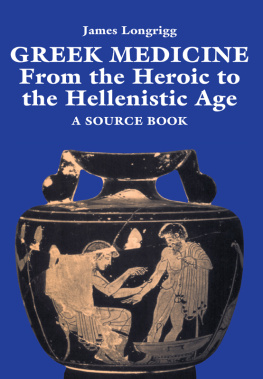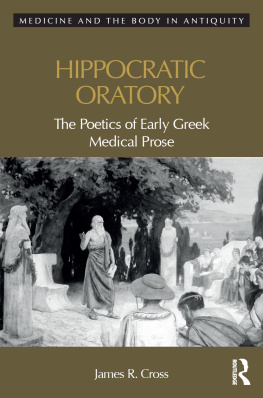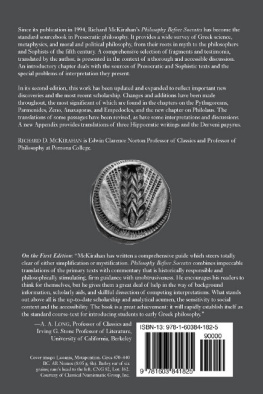PROFESSOR SIR GEOFFREY ERNEST RICHARD LLOYD is Emeritus Professor of Ancient Philosophy and Science in the University of Cambridge and until 2000 he was Master of Darwin College. He was born in 1933 and educated at Charterhouse and Cambridge. His publications include Polarity and Analogy (1966), Aristotle: The Growth and Structure of His Thought (1968), Early Greek Science (1970), Greek Science After Aristotle (1973), Magic, Reason and Experience (1979), Science, Folklore and Ideology (1983), Science and Morality in Greco-Roman Antiquity (1985), The Revolutions of Wisdom (1987), Demystifying Mentalities (1990), Methods and Problems in Greek Science (1991), Adversaries and Authorities (1996), Aristotelian Explorations (1996) and Greek Thought (edited with Jacques Brunschwig, 2000).
HIPPOCRATIC WRITINGS
Edited with an introduction by
G. E. R. LLOYD
Translated by
J. CHADWICK AND W. N. MANN
I. M. LONIE
E. T. WITHINGTON
PENGUIN BOOKS
PENGUIN BOOKS
Published by the Penguin Group
Penguin Books Ltd, 80 Strand, London WC2R 0RL, England
Penguin Putnam Inc., 375 Hudson Street, New York, New York 10014, USA
Penguin Books Australia Ltd, 250 Camberwell Road, Camberwell, Victoria 3124, Australia
Penguin Books Canada Ltd, 10 Alcorn Avenue, Toronto, Ontario, Canada M4V 3B2
Penguin Books India (P) Ltd, 11 Community Centre, Panchsheel Park, New Delhi 110 017, India
Penguin Books (NZ) Ltd, Cnr Rosedale and Airborne Roads, Albany, Auckland, New Zealand
Penguin Books (South Africa) (Pty) Ltd, 24 Sturdee Avenue, Rosebank 2196, South Africa
Penguin Books Ltd, Registered Offices: 80 Strand, London WC2R 0RL, England
www.penguin.com
First published by Blackwell 1950
This edition with additional material published
as a Pelican Classic 1978
Reprinted in Penguin Classics 1983
22
Introduction copyright G. E. R. Lloyd, 1978
Translation of Fractures copyright 1928 by Loeb Classical Library
(Harvard University Press: Heinemann)
Translations of The Seed, The Nature of the Child
and The Heart copyright I. M. Lonie, 1978
All other translations copyright 1950 by J. Chadwick and
W. N. Mann
All rights reserved
Except in the United States of America, this book is sold subject
to the condition that it shall not, by way of trade or otherwise, be lent,
re-sold, hired out, or otherwise circulated without the publishers
prior consent in any form of binding or cover other than that in
which it is published and without a similar condition including this
condition being imposed on the subsequent purchaser
ISBN: 978-0-14-191486-2
CONTENTS
PREFACE
THE bulk of the Hippocratic Corpus is such that only a small proportion of the extant treatises can be included in a book such as this. The aim has been to present a selection of the most important and interesting treatises in the best available English translations. Many of the most famous treatises, including The Oath, Tradition in Medicine (otherwise known as Ancient Medicine), The Sacred Disease, and the first and third books of Epidemics, were translated by Dr J. Chadwick and Dr W. N. Mann in the volume entitled The Medical Works of Hippocrates, published by Blackwell, Oxford, in 1950. The translations in that volume, which are reproduced complete, with minor revisions, except for Coan Prognosis, form the major part of the present selection.
As the title of their book implies, the translations of Dr Chadwick and Dr Mann were of medical works. Translations of four of the outstanding non-medical treatises in the Hippocratic Collection have been added.
(1) The translation of Fractures by Dr E. T. Withington, originally published in volume three of the Loeb edition of Hippocrates (Heinemann, London; Harvard University Press, Cambridge, Mass.) in 1928; Fractures is one of the two major surgical treatises (the other being Joints) in the Hippocratic Collection.
(23) Translations of The Seed and The Nature of the Child by Dr I. M. Lonie from the forthcoming Ars Medica series volume, containing edition, translation and commentary, by Dr Lonie and Professor G. Baader. Together with the work known as Diseases IV, The Seed and The Nature of the Child form the group of so-called embryological treatises that were almost certainly composed by the same author and that deal with the problems of generation, heredity and sex differentiation as well as with the growth of the embryo.
(4) A translation of The Heart: this, though later in date than most of the other Hippocratic treatises, is the out standing work dealing with an anatomical subject in the Collection. In this case the translation by Dr I. M. Lonie has been undertaken specially for this volume.
It is a pleasure to record my thanks first and foremost to Dr Chadwick, Dr Mann and Dr Lonie, whose help and counsel have greatly facilitated my work as editor; to Professor Finley, who initiated the idea of such a volume; to my father, Dr W. E. Lloyd, for advice on medical matters, and to my son, Matthew, for help in preparing the index.
G.E.R.L.
Cambridge, February 1973
INTRODUCTION
IN Western medicine, the name of Hippocrates has always stood for an ideal. Until comparatively recently in the history of Western medical thought, his views that is, the views of the works that passed for his were accepted as authoritative on all kinds of medical problems, and medical students read their Hippocrates not out of piety but as an essential part of their training as doctors. That is no longer the case: yet Hippocrates still represents an ethical ideal, the ideal of the compassionate, discreet and selfless doctor, and those who graduate from the medical schools of Scottish universities still, in 1973, subscribe to a version of his oath. Moreover, while the importance of Hippocrates has declined with the advance of modern medical knowledge, from another point of view the Hippocratic writings have not lost but gained in interest, as scholars have come to appreciate more fully their role in the development of Greek science, and in the subsequent history of western science as a whole. Although Hippocrates is no longer assumed to be the repository of all medical wisdom, the importance of the writings associated with his name is threefold: first for the still living ethical ideal of the doctor that they represent, second for the insight they provide into the origins and development of rational medicine in the West, and third for the extraordinary influence that they exercised over medical thought over so many hundreds of years.
THE HIPPOCRATIC COLLECTION
The collection of medical writings known as the Hippocratic Corpus consists of about sixty treatises, some in several books, that vary widely in subject-matter, style and date. Although most of the treatises were written between 430 and 330 B.C., some are later works. The subjects covered include general pathology and the pathology of particular conditions, diagnosis and prognosis, methods of treatment and of the preservation of health, physiology (the constitution of man), embryology, gynaecology, surgery and medical ethics. A few of the treatises are carefully composed lectures, some of which appear to be addressed to a general audience: that is, an audience that included laymen as well as medical students or doctors. Some other treatises too are fairly clearly defined entities, for example text-books dealing with a particular subject, or works arguing a particular thesis on a theme or themes announced at the outset. But a large number are composite productions, collections of diverse material, in some cases probably the work of several hands. Scrapbooks or notebooks such as the

